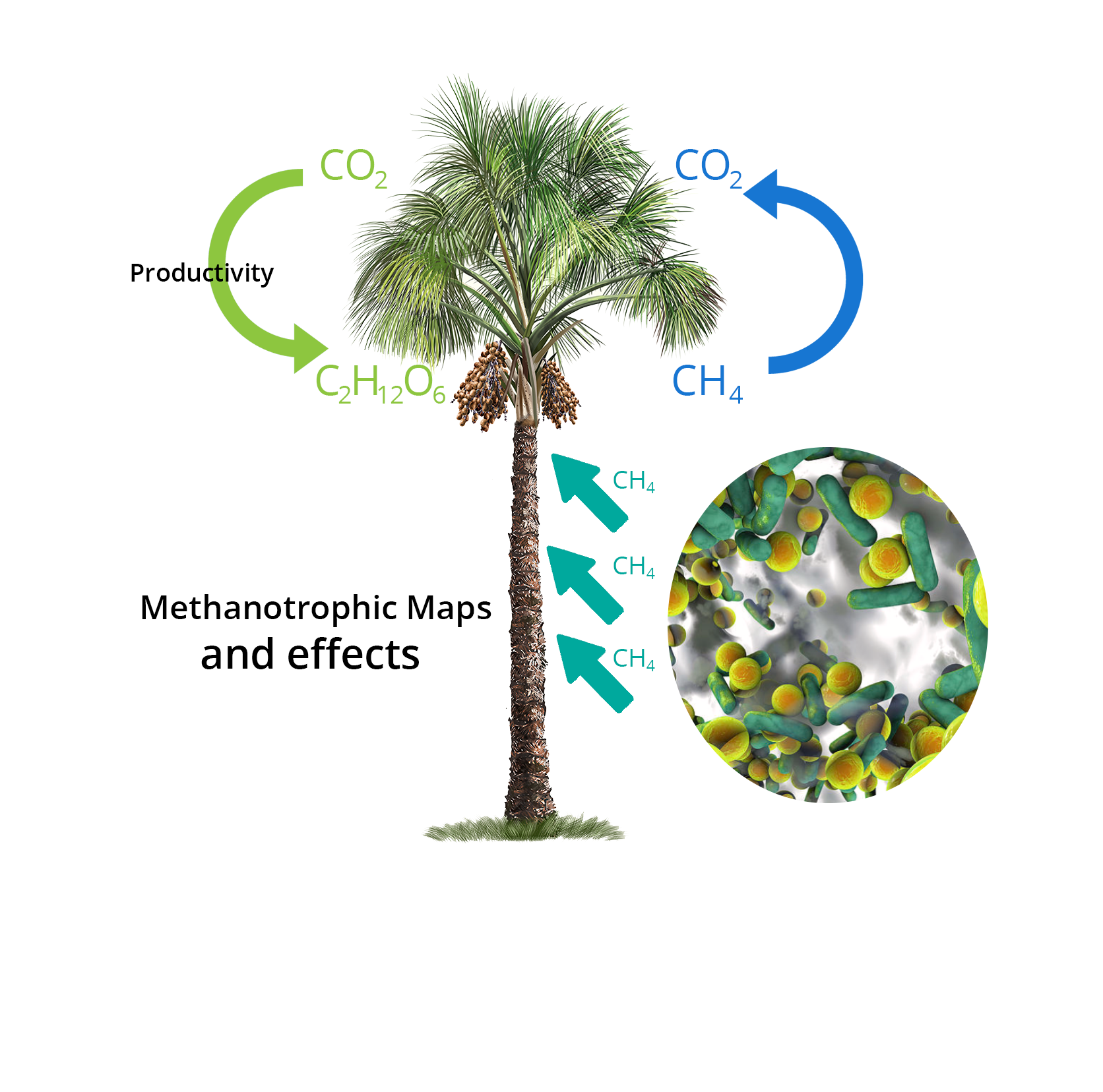
Spark is currently supporting research to advance our understanding of natural methane sinks, and study and advance the potential efficacy, safety, and governance of potential atmospheric methane removal approaches.

Research is developing novel ways to map methane uptake by microbes on tree leaves and stems and quantify the upscaled sink and forest potential for methane removal.
Hinsby Cadillo-Quiroz
August 2025
-
August 2026


Assessment of methods to improve the effectiveness of bacteria in bioreactors
Lisa Stein
January 2025
-
December 2026


Assessment of the efficiency of a wide range of potential methane oxidizing catalysts
Adam Boies
February 2025
-
January 2027


Research characterizing the contribution of methanotrophs on tree surfaces to the global methane budget and investigating potential approaches to enhance that sink
Vincent Gauci, James McDonald, and Yin Chen
January 2025
-
December 2026


Research enabling plants to remove methane from the atmosphere via genetic engineering
Eli Hornstein
June 2024
-
June 2026


Research to characterize the ability of soil amendments to increase methane removal and lower nitrous oxide emissions, and the effect of these amendments on microbial community activity and composition
Jeremy Semrau and Whendee Silver
September 2023
-
July 2025


Observational study to quantify atmospheric oxidation of methane at regional and global scales
Thomas Röckmann
January 2025
-
December 2026


Improving our ability to model reactive atmospheric halogens
Hartmut Herrmann
December 2024
-
November 2026


Observational study quantifying the effect of mineral dust on methane oxidation
Lucy Carpenter
June 2025
-
May 2027


Research quantifying the efficiency of ferric chloride aerosols in oxidizing methane
Mingyi Wang
January 2025
-
December 2026

.jpeg)
Research on advancing our understanding of existing atmospheric oxidation processes hypothesized to be naturally removing more atmospheric methane than previously studied
Matthew Johnson, Thomas Röckmann, Alfonso Saiz-Lopez, Natalie Mahowald, Peter Hess, Maarten van Herpen, Berend van de Kraats
January 2022
-
December 2026


Research to better constrain the fingerprints of different atmospheric methane sinks
James Farquhar
September 2024
-
August 2026


Assessment of the viability of detecting methane oxidation from satellites
Jos de Laat
September 2024
-
June 2025


Research on advancing our understanding of spatially resolved methane emissions, removals, and impacts
Yangyang Xu
January 2023
-
December 2023

Menu
Stay in touch
Sign up to our Spark newsletter and stay updated!